Meet the Dulwich College Beijing Music team
“If I were not a physicist, I would probably be a musician. I often think in music. I live my daydreams in music. I see my life in terms of music.” --- Albert Einstein
Our highly talented Music team would certainly agree with Albert Einstein! No celebration goes by without their lively contribution, be it live or online. Meet our whole College Music team and hear about their experience!
- Shauna McFaul
- Angela Gordon
- David Powell
- Paola Conte
- Li Nolan
- May Li
- Emma Sun
- Yifan Li
- Janice Jin
- Alma Yang
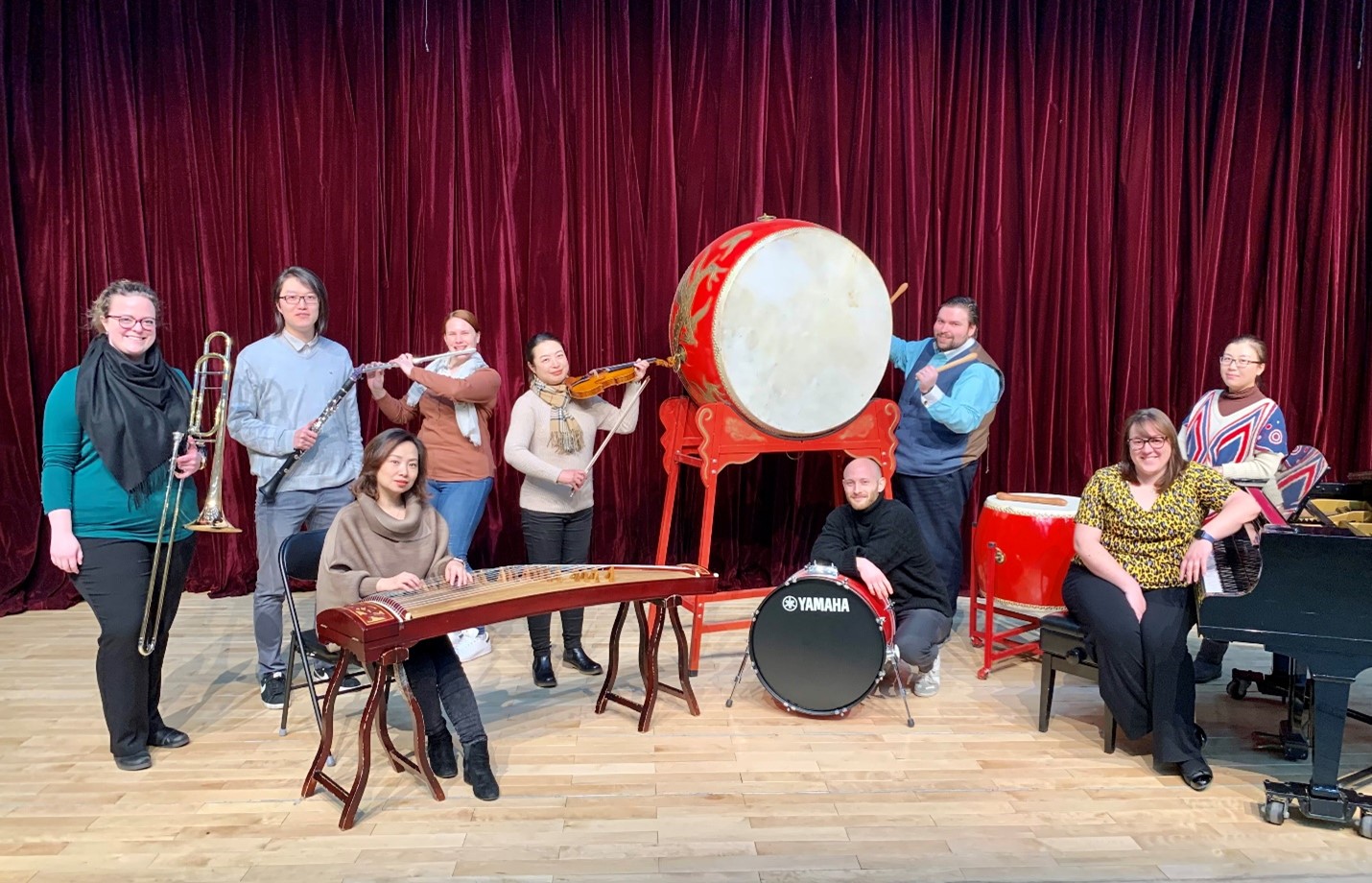
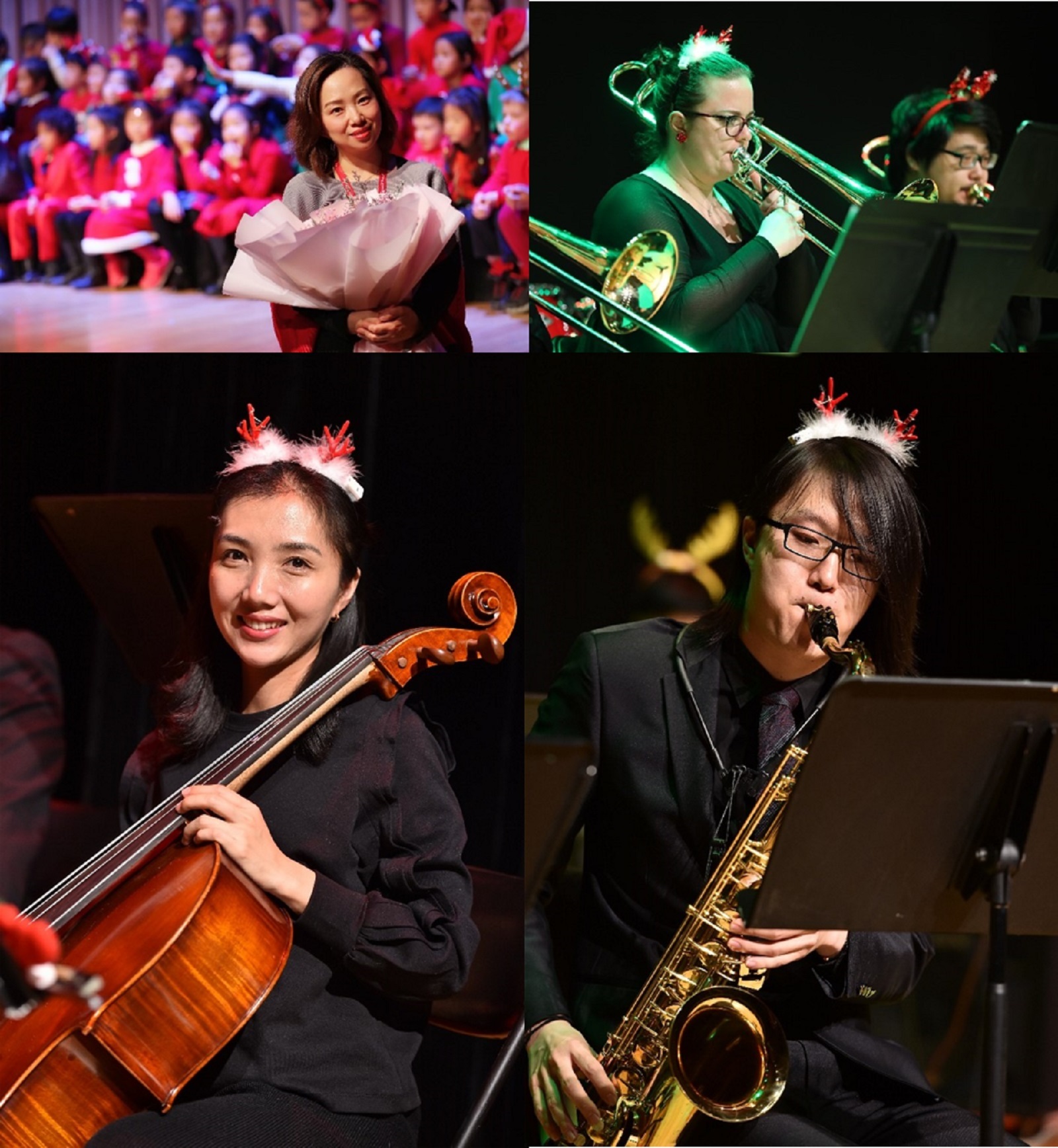
How would you define the role and value of Music in education?
A well-rounded education for our students should not only include the development of knowledge and skills in maths, reading and writing, but should also include the development of musical and artistic literacy, allowing them to create, perform, and respond to music throughout the entirety of their lives. It is essential in developing students into caring, responsible global citizens who are ready to contribute to the changing world around them.
“Music can change the world.” --- Ludwig van Beethoven
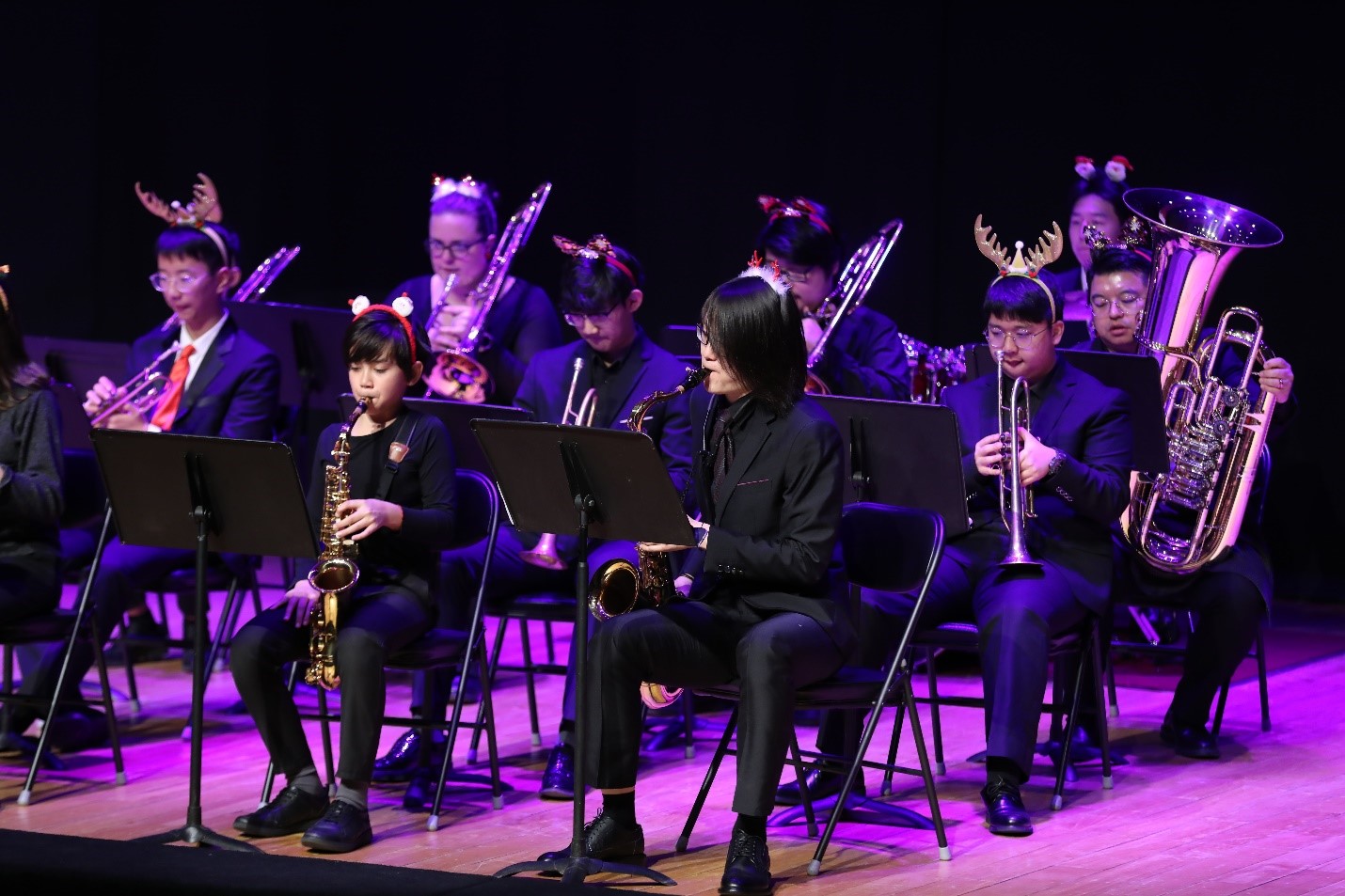
How do the students’ music skills and challenges evolve as they grow up, and how do you adapt your teaching to support them along the process ?
- In Early Years, students begin their music instruction through play-based activities that inspire excitement for music-making while simultaneously introducing them to the building blocks of musical concepts such as pitch, beat, dynamics and tempo.
- In Junior School, we begin to formalize their prior learning with a deeper study of composition, improvisation, instrumental performance, and listening analysis.
- Upon joining Senior School, Key Stage 3 students continue this development through modules on contemporary music, world music, and advanced performance and composition skills. This academic year, we have piloted a new model for learning in Year 7 which allows students to exercise choice in their learning by selecting modules that inspire them.
- In Years 10 and 11, students who choose to take music as an IGCSE option follow the Cambridge curriculum. Finally, some students choose to continue their musical journey by undertaking the IBDP Music course in Year 12 and Year 13.
All students are afforded a variety of extra-curricular musical offerings that supplement and enhance their curricular music learning throughout their time at DCB. These offerings include choirs, small and large instrumental ensembles, and contemporary bands.
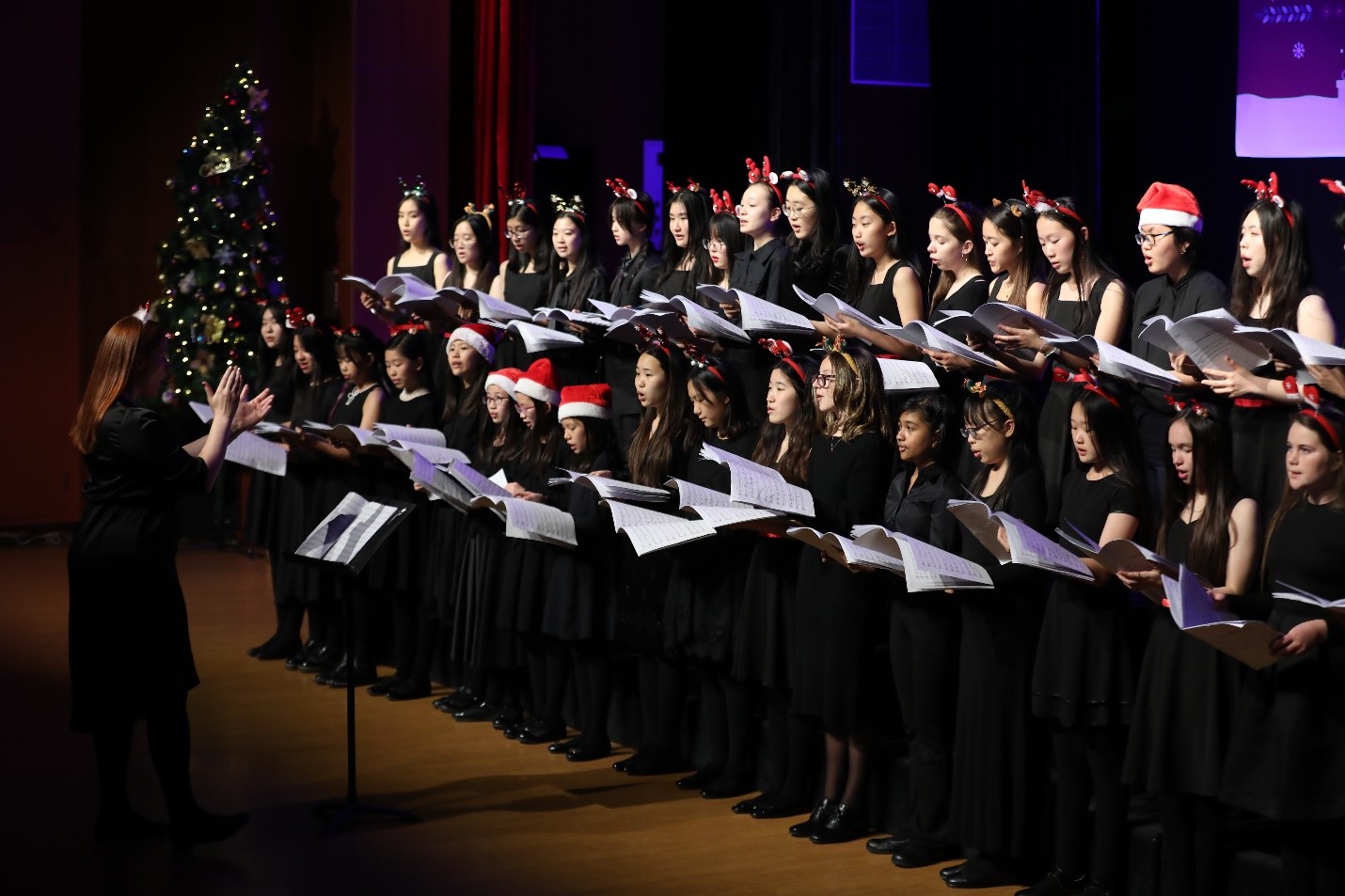
How do you encourage and support a promising student to grow to his/her full potential?
It is important to us as a department to not only provide opportunities for mass engagement and learning in music but also to offer opportunities for further enrichment to students who are interested in and ready for such opportunities. This may include recommendations for private study on their instrument, opportunities to audition for advanced ensembles, and participation in competitions both in and outside of school.

In the current online or hybrid learning setting, how does Music adapt to such an unexpected format ?
Music is a difficult subject to adapt to online learning, but it affords us an opportunity to delve deeper into various areas of musical skills, especially in the realm of music technology. Students learn to record themselves and use programs such as Garage Band and Band Lab as part of their learning. We have worked hard to continue our ECA provision where possible by doing virtual performances in both Junior and Senior Schools. Look at the below an example of an online singing assembly with teachers, students and parents singing along !
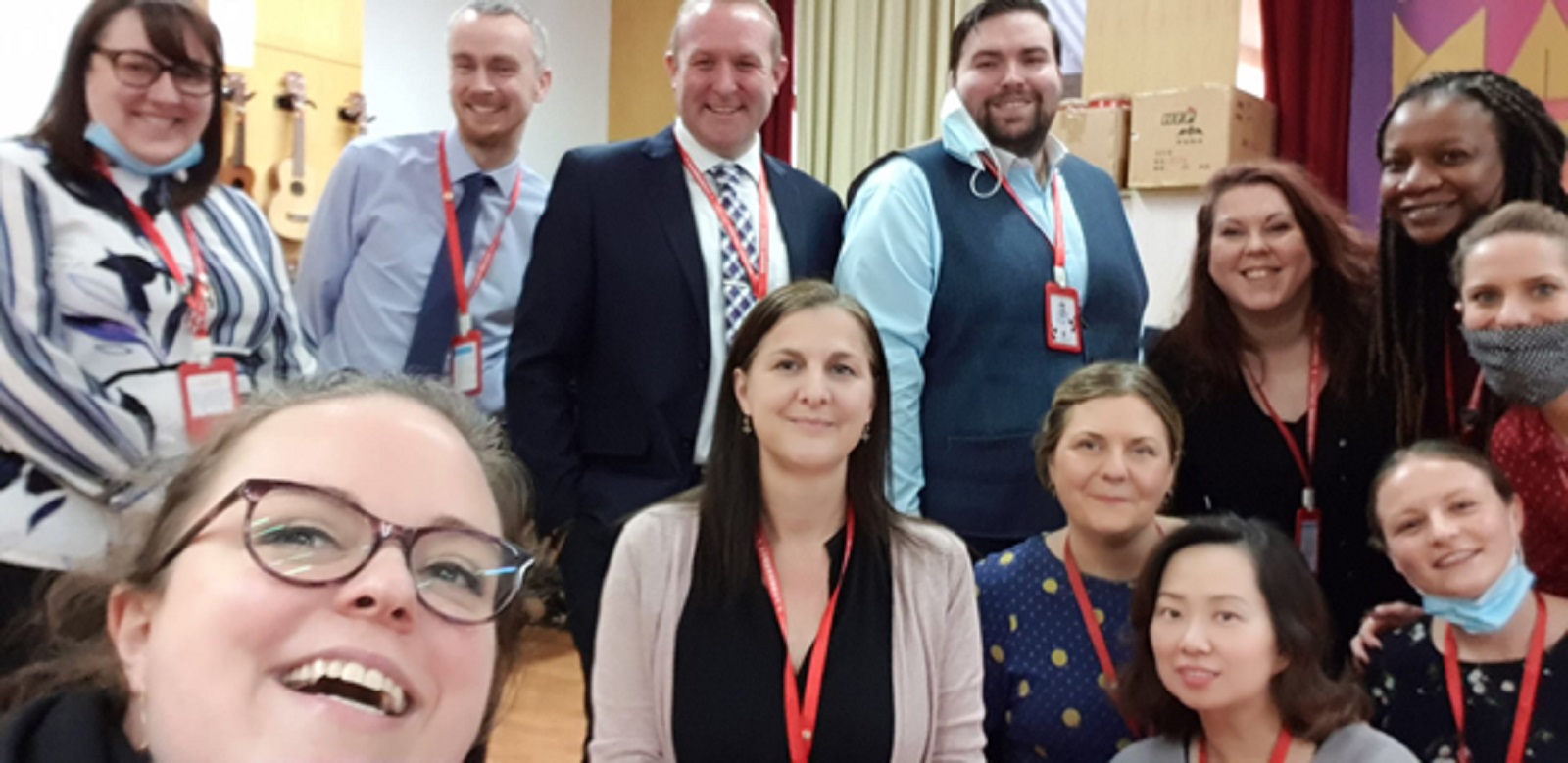
The main challenge and the most rewarding thing in teaching music ?
There is no endpoint in learning music! There is always something more or new to be learned, no matter how skilled a musician is ! We can always find ways to guide our students to grow and improve and challenge themselves, so our work is never done! This is both a challenge and very rewarding !









